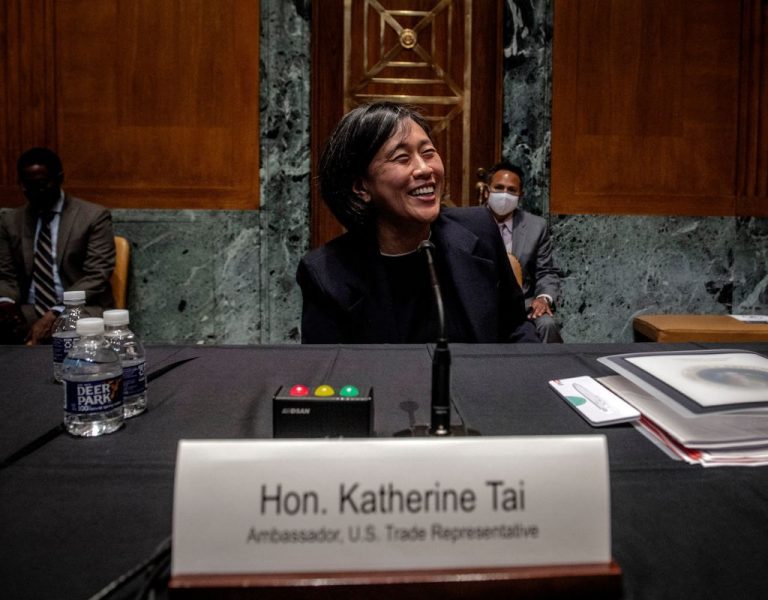Katherine Tai, the United States Trade Representative (USTR), is expected to declare on Oct. 4 that China is failing to fulfill its Phase One trade deal commitments agreed on between the U.S. and China during the Donald Trump administration.
Tai, who was sworn in as USTR in March, has been conducting a review of Washington’s China trade policy. In a speech scheduled at the think-tank Center for Strategic Studies in Washington on Monday, she is expected to reveal the Biden administration’s much-anticipated strategy for the U.S.-China trade relationship. Tai will also engage in a question-and-answer session post her remarks.
In January last year, then-U.S. President Donald Trump and Chinese Vice Premier Liu He signed a phase one deal to ease the trade conflict simmering between the two nations.
The deal, which expires at the end of 2021, called for China to boost purchases of U.S. farm and manufactured goods, energy, and services by at least $200 billion. Beijing was also expected to address U.S. concerns with regard to China’s questionable track record in protecting intellectual property rights. Washington agreed to cut U.S. tariffs on Chinese goods in exchange for China complying with the deal.
Nearly nine months into the Biden presidency, China has still not fulfilled its commitments made in the trade deal. According to Chad Bown, a senior fellow at the Peterson Institute for International Economics in Washington, China’s procurement of U.S. goods and services through August is approximately running at about 62 percent of the trade deal’s targets.
Success
You are now signed up for our newsletter
Success
Check your email to complete sign up
It isn’t known how the USTR plans to respond to China’s failure to fulfill its commitment. Anonymous sources told CNBC that the USTR is considering imposing additional tariffs on China for its non-compliance.
Meanwhile, the Biden administration is facing pressure from business groups who are eager to find out whether Washington will continue the tariffs imposed on Chinese imports and if the White House plans to begin negotiations for a follow-up of the Jan. 2020 trade deal. The Trump administration had previously placed tariffs on nearly $370 billion worth of Chinese imports, something that has been left intact by the Biden administration.
In an interview with The Wall Street Journal, Craig Allen, president of the U.S. China Business Council, said that he is concerned about the Biden administration continuing with the tariffs. He believes that these tariffs are going to “warp” relations between Washington and Beijing. “We need to ask ourselves, do we really want those excess tariffs in perpetuity,” Allen said.
In addition to the trade deal, tensions between the two superpowers have also increased in the field of technology, with Washington restricting several Chinese companies from accessing sensitive U.S. tech due to security concerns. Tai had earlier stated that America’s trade ties with China are fraught with “very large challenges.” She wants new trade law tools to counteract the massive subsidies granted by Beijing to its tech companies and has requested the same from Congress.
















